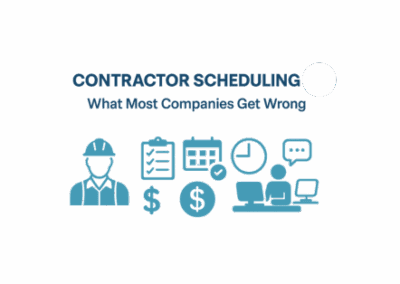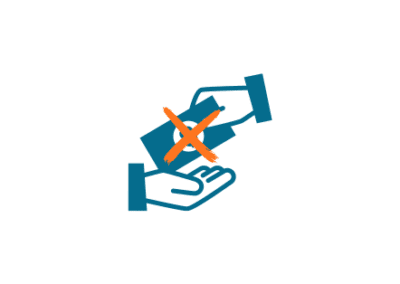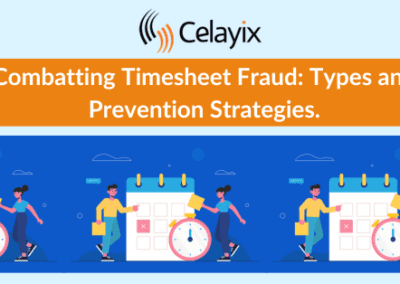A national workplace survey sponsored by The Hartford Financial Services Group Inc. found that 58% of blue-collar households have a family member who has been injured on the job, requiring medical attention. As an employer, there are always steps that you can take to ensure the safety of your employees. This is of course much easier when all of your employees are in one location. You can use an automated alarm system, or restricted access with passcodes or passes. You’ve also likely established emergency situation protocols, right? Well, what happens when your employees work across multiple sites? Ensuring their safety becomes a little bit trickier. That’s where geofencing steps in.
What is Geofencing?
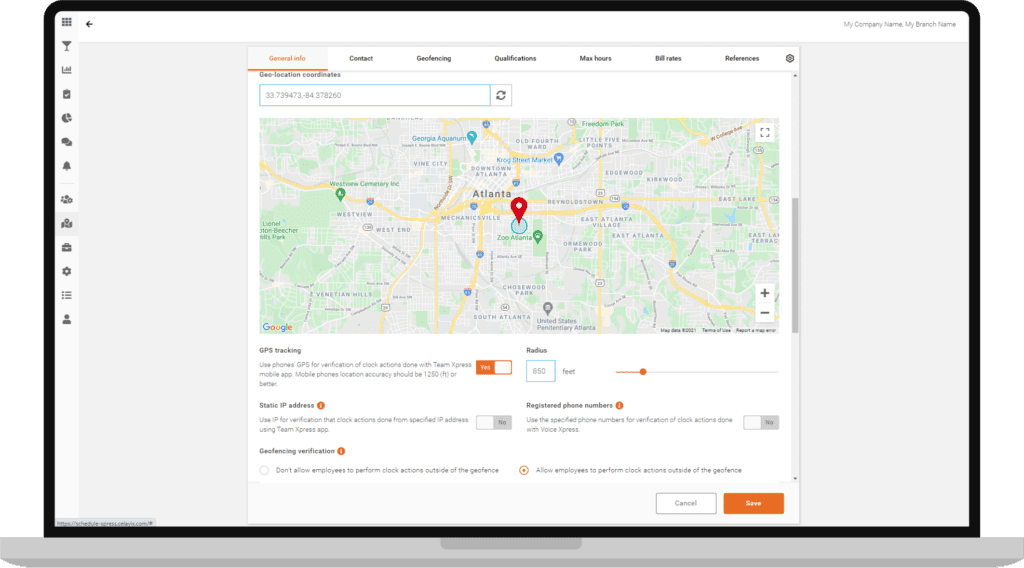
A geofence is a “virtual geographic boundary, defined by GPS or RFID technology,” or a virtual perimeter for a geographic area in the real world. Essentially, it creates an invisible fence that will be triggered when a device crosses inside/outside of it. As you might imagine, there are lots of possible applications of geofencing when it comes to employee safety.
Why employee safety is important
Before we get into how geofencing can help, let’s break down why employee safety should high in your priorities.
Positive Work Environment

When you show your employees that you care for their safety, it creates a much better work environment for everyone. It speaks to the company culture when such an emphasis is placed on employee safety. In turn, employees tend to be more trusting and open with management.
Employee Retention
Echoing back to the previous point, employees really do appreciate when employers actively care for their safety. In situations where employees feel unsafe, they are more likely to look for work elsewhere, creating issues with employee retention. So, if you want to retain your employees, investing in employee safety is a great place to start.
Return on Investment
According to the Liberty Mutual Workplace Safety Index, every $1 a company invests in workplace safety, amounts to a $4 return on investment. At first, this might seem surprising, but when you consider the costs of employee injuries, you can see how important investing in employee safety is. The total cost of work injuries in 2019 was $171.0 billion when you consider wages, lost productivity, medical expenses, and administrative costs. By investing in employee safety as early as possible, you can prevent a lot of workplace accidents and mitigate these costs for your organization.
Competitive Advantage
The final, and perhaps most important benefit is the competitive advantage you can gain. Investing in employee safety gives you a competitive advantage in more ways than one. Taking a security guard company as an example, let’s break down these advantages. When you can display your efforts to keep guards safe while working on-site, they are more likely to choose to work for you. This will help you attract and retain top talent. Not only that, but this can also help you gain new clients. Clients will be impressed with your efforts to keep employees and their sites safe.
How to use Geofencing for Employee Safety
While there are many uses to geofencing in general, when it comes to employee safety there are 2 main uses. For the purpose of this blog, let’s focus on security guard companies, but these practices can be applied to any industry with a mobile workforce.
Geofenced Check In/Out
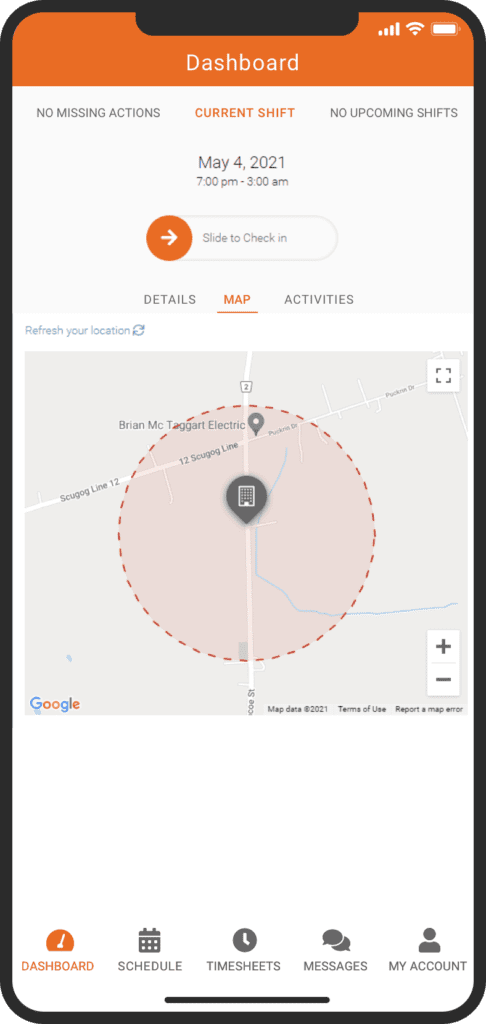
One of the hardest parts of managing employees that work across multiple sites is ensuring that they arrive safe, and complete their shift safely. Generally, managers are not on-site and it is very common for security guards to patrol sites by themselves. So, how can you ensure that employees arrive safely on-site? Creating a geofence means guards can only check in once they arrive on site. This way, you know that employees are safe and fit to carry out their shift.
The same applies to checking out of or finishing a shift. Guards will only be able to check out of a shift within the geofenced perimeter. This affirms to management that guards were safe throughout their shift and remained on site.
Safety Checks
Perhaps the most beneficial use of geofencing in employee safety is using it for safety checks. As an employer, you can request regular safety checks from employees. You can request them as frequently as you like, hourly, daily, or at set times throughout the day. These safety checks can only be carried out within the geofence.
Generally, these safety checks will have a couple of steps that will ensure employee safety. For a security guard, these safety checks might include checking gates/doors are secured, reducing the risk of accidents and threats. The GPS tracking from the geofencing will confirm to employers that the checks are being carried out, and to their full extent. These safety checks are extremely beneficial when managing multiple employees across multiple sites. Without these geofenced safety checks, management struggle to ensure their employees and their client sites are safe.
The great thing about these geofenced safety checks is that they provide a mechanism for employees to communicate with employers safely and securely. In the event that a site is compromised, or a guard does get into an incident, the safety checks provide the opportunity to relay vital information to management. This communication is secure, and instant, giving management everything they need to be able to react to the situation as required.
Other Benefits of Geofencing
By using geofencing to ensure employee safety, you will likely experience other benefits within your organization. Time and attendance accuracy will be improved, as check-ins are only collected once an employee is ready to work and present on site. This geofencing data can be passed over to your payroll provider, improving the overall accuracy of the data, and the efficiency of the process. It is also likely that tardiness will be reduced with geofencing, as employees understand that they will only be paid once they check-in, and they must be on-site to check-in. Geofencing will also allow managers to spend less time managing their mobile workforces, allowing them to focus their time and resources elsewhere.
If you’d like to hear more about Celayix’s geofencing capabilities and features, reach out to one of our Solution Advisors here!


